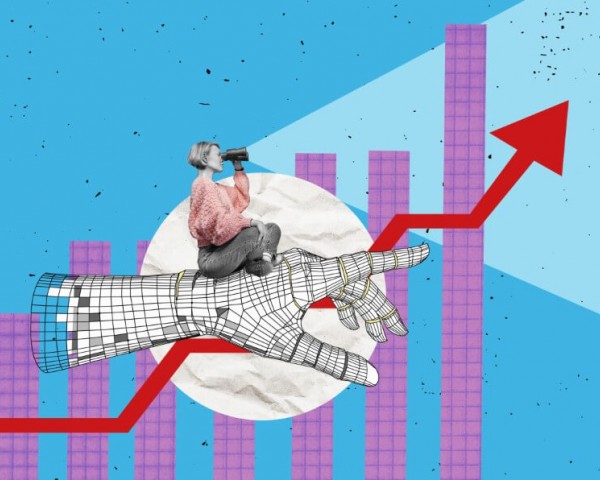The travel sector, noted for its ever-changing character and shifting tastes of patrons, is currently experiencing a digital shift. This transformation is changing how marketers relate to travelers. With AI tools increasingly important in travel plans, bespoke experiences have become a key way to engage discerning clients. With rising internet bookings, plus the growing trend of flexible planning, digital marketers need to use advanced technologies (like deep learning) to deliver tailored experiences that speak to each traveler’s desires.
The Rise of Online Travel Planning
Digitization has fundamentally changed how travel purchases are done. Data from Euromonitor for 2024 show that 66% of all travel bookings happen online, with predictions that it will rise to over 70% by 2027. This points to a rising reliance on apps and digital sites, where travelers want not just information but rich, visual content plus real reviews by other travelers. Research by Phocuswright (2024) shows that 22% of U.S. travelers already utilize general AI tools for travel arrangements, with around 50% expecting to within a year. This underscores how tech shapes modern travel adventures.
Personalization: A Necessity, Not a Luxury
Travelers these days desire unique, meaningful adventures. Experts stress that consumers now seek experiences that make them feel special, not just focused on price or destination. Backing this up, 72% of consumers only engage with personal messages, and 63% see personalization as an expected standard. As a response, digital marketing is moving from general advertising toward using solutions that study specific user actions for custom ads. This level of personalization is essential to remain competitive in travel.
Flexible Planning and Seasonal Trends
Travelers’ choices are also getting more flexible, with bookings planned more than 180 days ahead rising by 20% through the middle of 2025. There’s also been a very striking 52% rise in last-minute bookings (0–3 days), according to data by Expedia. This shows a need for dynamic, real-time campaigns. Seasonality still matters a lot, with peaks during the summer break, the winter sports season, and during holidays. These drive big shifts in what people want. So, marketers have to match campaigns to these seasonal trends, so they capture people’s interest when it matters.
The Power of Deep Learning in Advertising
Advertising that is personalized using deep learning is changing how travel marketers interact with their audiences. These algorithms can analyze diverse data – browsing, searches, demographic data and social interactions. The algorithms can then recognize particular likes and dislikes. This means they can deliver highly relevant ads. For example, a traveler who has looked at luxurious hotels or shown interest in a place might get specific ads for those hotels or curated trips. This improves relevance, increases clicks and boosts the whole user adventure.
A New Era for Travel Marketing
The travel sector continues to develop, and this means that digital marketers must both meet the needs of experienced, tech-aware travelers while also seizing opportunities. Integrating AI tools and deep learning helps marketing to deliver personalized and timely campaigns that fit user choices around flexibility and authenticity. With online bookings set to keep rising and GenAI growing, the future of marketing travel is about harnessing data and customization to build the memories that resonate. It’s like this: each traveler ought to feel a bit special, right? So, by really getting into these new ways of doing things, those in charge of marketing can find their way through all the tricky parts of the travel world, and, what’s more, tap into all the great stuff it has to offer.

